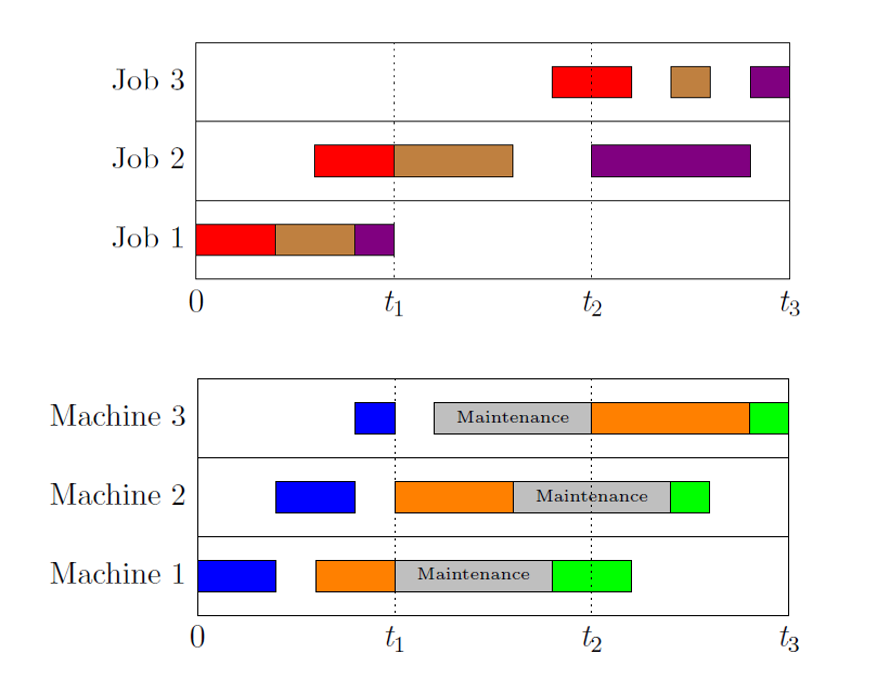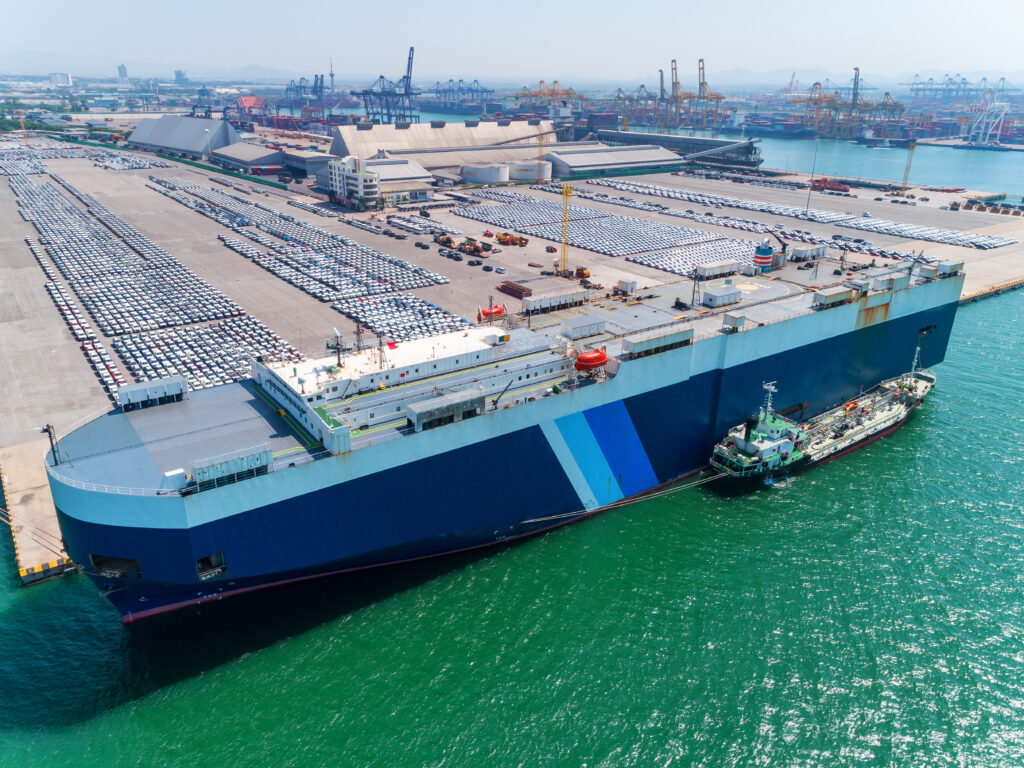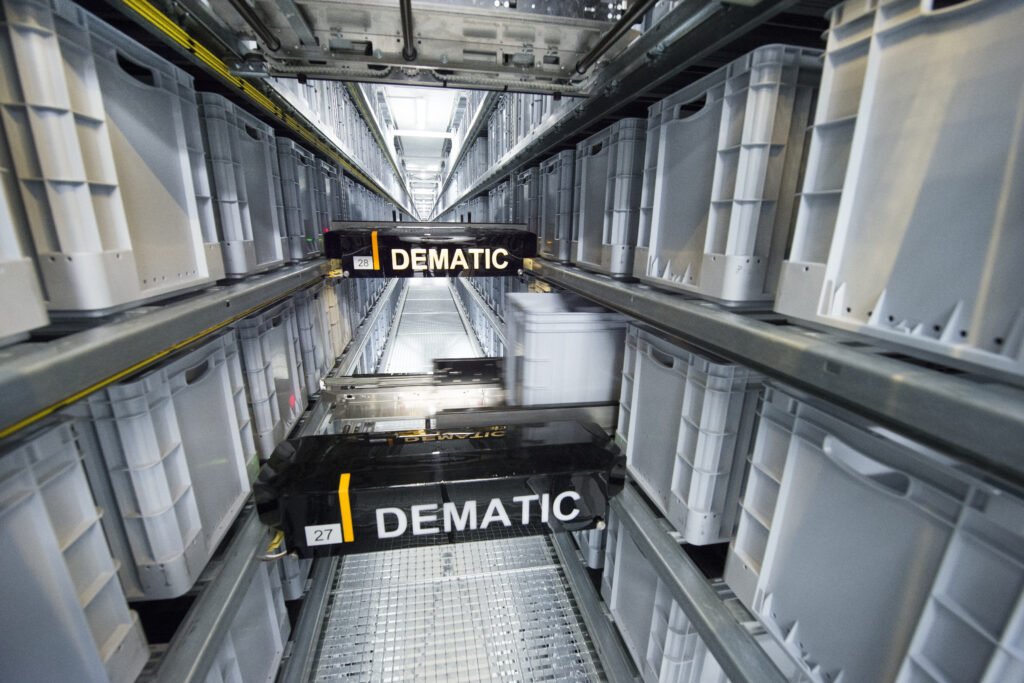Position dependent maintenance scheduling
Scheduling as a part of Operations Research deals with the allocation of limited resources (human resources, machines, etc.) to process a number of assignments under consideration of a predefined time slot, an objective, and specific constraints. Typically, any type of resources is called machine and an assignment is a job.
In our current research, we focus on problems considering machines with availability constraints. Machines deteriorate and must undergo service, i.e. maintenance operations are required, to restore the original state of the machine. The deterioration depends on the number of scheduled jobs on the machine and not, as typically assumed, on the length of scheduled jobs. Including different objectives and model restrictions, we analyze models with position dependent maintenance regarding their runtime complexity to derive strategies for real-world applications.
Contact person: Julius Hardt, Dr. Andreas Hipp



Automotive transshipment terminals
Between automotive transshipment terminals cars are shipped with roll-on-/roll-off-ships (roro-ships) in order to sell them on the global market. Due to high operative costs of roro-ships, lay times are usually tightly set, which in turn forces the automotive transshipment terminal to efficiently schedule its personnel that carries out the unloading and loading operations.
Based on a case study, this research project will take a closer look at the challenges of personnel scheduling for unloading and loading operations.
Contact person: CPT Frank Wiedra
Airplane Boarding
Airplane boarding represents a process that usually is on the critical path of airplane turnaround. Hence, just a few minutes of savings per flight can lead to immense cost reductions. The aim of our research is to determine factors influencing boarding time by applying analytical models and methods as well as by evaluating real data collected at the airport, and to analyze which characteristics optimal boarding strategies have.
Based on the results, applicable efficient boarding strategies can be derived.
In a current research project, passenger preferences were determined and analytical models were used to develop boarding strategies that both minimize boarding time and also consider customer preferences.
Contact persons: Dr. Finn Meissner


Storage and retrieval strategies for compact storage systems
The scarcity of space in cities and the growing e-commerce with continually decreasing delivery times pose new challenges to logistics. A new type of warehouse with both high storage density and high throughput is expected to provide a solutiontackle these challenges.
The aim of our research is to evaluate the new type of warehouse and to embed it into the existing research on warehouse types. For this purpose, relevant problems are to be identified and analyzed.
In a current research project, a compact storage system is being developed together with the Professorship Technology of Logistics Systems and a partner from practice. The problem descriptions derived from the storage type are examined regarding their characteristics. Taking into account key performance indicators – e.g. throughput and energy consumption – storage and retrieval strategies are developed. The evaluation is carried out on the model and on the real system.
Contact persons: Nicolas Fauvé
Rebound Effects in Transportation
Sometimes measurements taken to increase resource efficiency do not reach the estimated magnitude, as part of the reduction vanishes due to the reaction of entities to the changed environment. This so-called rebound effect is intensively discussed in the energy sector literature, yet surprisingly little is found for transportation. Our research showed that rebound effects occur in logistics as well. Current research is concerned with the more precise quantification of the effect as well as possibilities for decision-makers to counteract the effect.
Contact person: Dr. Finn Meissner

Publications
Publications of Florian Jaehn
Publications of Andreas Hipp
Publications of Finn Meissner
Letzte Änderung: 28. August 2024


